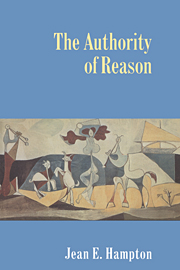Book contents
- Frontmatter
- Contents
- Editor's Preface
- Preface and Acknowledgments
- Introduction
- PART I SCIENCE AND OBJECTIVE NORMS
- PART II INSTRUMENTAL REASON
- PART III REASONS AND REASONING
- 7 Expected Utility Theory and Instrumental Reasoning
- 8 Expected Utility Theory and Consequentialism
- 9 Toward a “Postnaturalist” Theory of Reasons
- Bibliography
- Index
7 - Expected Utility Theory and Instrumental Reasoning
Published online by Cambridge University Press: 02 December 2009
- Frontmatter
- Contents
- Editor's Preface
- Preface and Acknowledgments
- Introduction
- PART I SCIENCE AND OBJECTIVE NORMS
- PART II INSTRUMENTAL REASON
- PART III REASONS AND REASONING
- 7 Expected Utility Theory and Instrumental Reasoning
- 8 Expected Utility Theory and Consequentialism
- 9 Toward a “Postnaturalist” Theory of Reasons
- Bibliography
- Index
Summary
Like all other arts, the Science of Deduction and Analysis is one which can only be acquired by long and patient study, nor is life long enough to allow any mortal to attain the highest possible perfection in it.
– Sherlock Holmes (Sir Arthur Conan Doyle), A Study in ScarletIn the preceding chapters, I have argued that a theory of instrumental reason of the sort that science requires must be informed by norms that have objective authority, at least some of which concern the structure and content of human good. If these arguments are right, however, they still do not in and of themselves vindicate any objectivist moral theory. The moral skeptic can fall back on the following argument: Alright, I will accept that I have objectively authoritative norms lurking in my theory of rationality, but I do not believe that there are objectively authoritative moral norms. Norms of rationality are real; norms of morality are not.
This response raises an important question: how does one go about showing that any given norm is “real” – that is, a norm that genuinely has objective authority? Moral theorists have worried about this question in a variety of ways, but few outside of moral theory have done so, because, I suspect, they haven't believed that they had to do so.
- Type
- Chapter
- Information
- The Authority of Reason , pp. 217 - 250Publisher: Cambridge University PressPrint publication year: 1998

